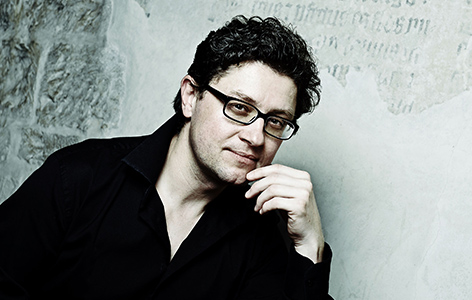
R2 Miroslav Sekera
The concert will offer a fascinating journey through piano repertoire, revealing deep emotion as well as technical virtuosity. Schubert’s Piano Piece in E-flat minor from 1828, reflecting the composer’s late style, will be paired with the youthful boldness of Brahms’s Piano Sonata No. 3. Czech 20th-century music will be represented by Luboš Fišer’s Sonata No. 8 and Gideon Klein’s expressionist Sonata, composed under the conditions of the Terezín ghetto. The evening will conclude with the energetic Spanish Capriccio by Moritz Moszkowski, highlighting a brilliant and virtuosic finale.
Franz Schubert
Piano Piece in E-flat minor, D.946 No. 1
Johannes Brahms
Piano Sonata No. 3 in F minor, Op. 5
Luboš Fišer
Piano Sonata No. 8
Gideon Klein
Piano Sonata
Moritz Moszkowski
Spanish Caprice, Op. 37
Miroslav Sekera – piano
Czech pianist Miroslav Sekera, winner of the Johannes Brahms International Competition in Pörtschach, Austria, has a deep affinity for German romanticism, which he features in his Ostrava recital program.
Franz Schubert’s Piano Piece in E-flat minor was composed in May 1828, just six months before the composer’s early death. Like many of Schubert’s final works, it is marked by an unprecedented depth of thought and emotion.
Brahms’s expansive and demanding Third Piano Sonata is the work of a twenty-year-old composer. This five-movement composition, Beethovenian in its boldness and structural thinking, overflows with romantic, emotionally charged music.
Czech piano music of the 20th century is represented by Luboš Fišer’s Piano Sonata No. 8. Fišer, widely known for his prolific work in film music, seems to apply a film-editing technique here, sharply alternating between passages of quiet, mysterious tension and moments of dramatic exaltation.
Gideon Klein’s Piano Sonata, composed in 1943 under the inhumane conditions of the Terezín concentration camp, is a powerful testament to the creative resilience of this Czech-Jewish composer. The work combines classical formal clarity with expressionist sound worlds.
The recital will conclude with the dazzling Spanish Caprice by Polish pianist and composer Moritz Moszkowski, a technically virtuosic showpiece from 1885.


